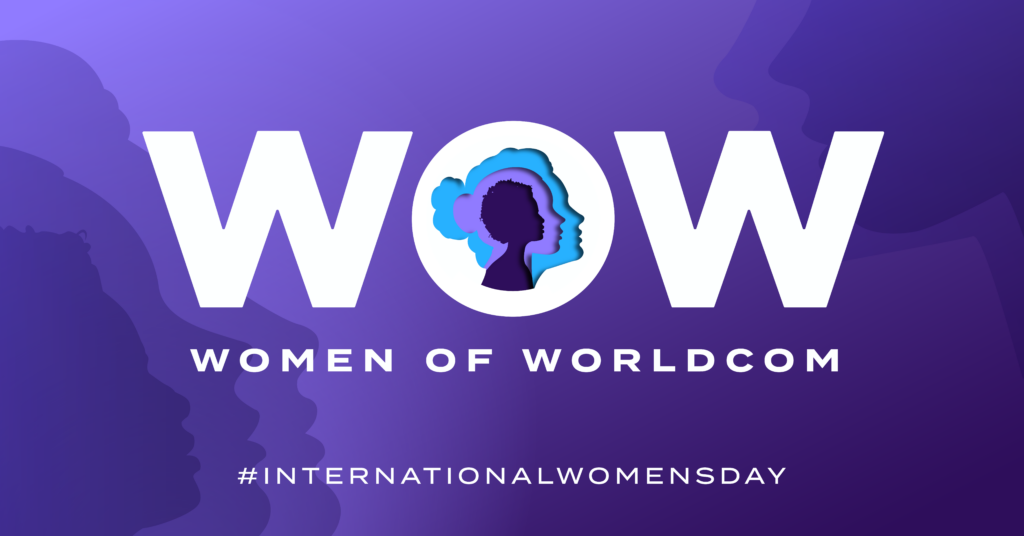In 2024, it’s estimated that about half of the world’s population will head to the polls as at least 64 countries (plus the European Union) hold national elections. No matter which way these elections go, business leaders will be expected to continue to drive their organisation forward.
In this second post in our five-post series, the Women of Worldcom Public Relations Group look at the pivotal impact of government and legislative change.
It’s crucial to prepare for any and all potential scenarios based on different election outcomes
By Jenn Lewis, Vice President, The Pollack Group, Los Angeles, USA
Effective communication is a must in an uncertain environment, such as during significant elections. It’s okay to be transparent about the uncertainty; in fact, it’s helpful for leaders to communicate openly about the challenges and complexities involved. It’s also crucial to prepare for any, and all, potential scenarios based on different election outcomes, including best-case, worst-case, and most-likely scenarios. Ultimately, the best course of action is to lead with empathy and compassion and ensure organizations are instilling transparency in all communication.
Leaders should remember to be empathetic and acknowledge the emotional impact of election results
By Cathy Clarkin, Chief Financial Officer, Coyne PR, New Jersey, USA
During government and legislative changes or unrest, people need leaders to stay true to core values, and mission, despite external uncertainties. We must stay informed and closely monitor the political landscape that could affect our audience.
Leaders should remember to be empathetic and acknowledge the emotional impact of election results.
Proactivity is paramount and adaptability and agility are non-negotiable
By Susie Horgan, Founder and Managing Director, Springboard Communications, Cork, Ireland
Navigating the turbulent waters of government and legislative changes demands more than just passive observation; it necessitates a proactive and strategic communication approach for marketers and PR professionals. As confidence in this arena continues to dwindle, businesses must have clear and transparent communication channels to effectively manage audience expectations.
First and foremost, proactivity is paramount. That means staying abreast of political developments and legislative shifts that could impact your industry or target audience. Businesses need to anticipate potential changes and equip themselves with timely, well-informed responses to stay ahead of the curve.
Also, adaptability and agility are non-negotiable. Companies need to be prepared to pivot and adjust their messaging to align with an evolving political landscape and shifting audience sentiments.
Everyone also needs to prioritise transparency and authenticity. Audiences demand honesty and integrity, particularly in matters concerning government affairs. This involves businesses clearly articulating how legislative changes may affect their audience and highlighting the steps being taken to address them.
Organizations that listen, are nimble and communicate authentically are better equipped to build resiliency
By Mihaela Grad, Senior Vice President, Standing Partnership, St Louis, USA
Elections always spell change and 2024 promises to be a rocky year. Presidential elections in the US and parliamentary elections in the European Union are likely to have implications far beyond their borders as geopolitical conflicts continue in the Ukraine, the Middle East and Asia. With political change come legislative and regulatory changes that can have significant implications for companies’ freedom to operate. So, what can companies do? We recommend the following strategies:
- Engage with your stakeholders. Maintain regular communication with your stakeholders, from customers, to employees, communities, trade organizations, elected officials, etc., to understand their priorities and concerns. Dialogue builds trust.
- Communicate transparently. Even though reporting or regulatory requirements may change after the elections, communicate your commitments and progress towards them. If you anticipate that potential new restrictions might impact your product portfolio, encourage your stakeholders to advocate for the products and technologies that are critical to their business.
- Empower your stakeholders to take action. Regulatory and legislative decisions are not taken in a vacuum. Policy makers listen to their constituents and take their preferences into consideration when making decisions. Inform your stakeholders about advocacy options at their disposal.
In conclusion, think of change not only as a disruptor but also as an opportunity. Organizations that listen, are nimble and communicate authentically are better equipped to build resiliency.
Empowering working women is not just a goal; it’s a catalyst for societal progress
By Lucie Schoberova, Chief Operation Officer, PRAM Consulting, Prague, Czech Republic
Empowering working women is not just a goal; it’s a catalyst for societal progress. International Women’s Day, should encourage us to celebrate strides in government and legislative support for working mothers. In the realm of PR, we amplify voices advocating for policies that champion equality, flexibility, and support for single mothers. Together, we’re crafting a narrative of empowerment, transforming challenges into opportunities. As we recognize the achievements, let’s fuel the momentum for continued change, ensuring a future where every woman, especially mothers, thrives in both career and family.
Expectation setting in an election year requires keeping four key components in perspective
By Elizabeth Fawcett, AVP, Public Affairs, RH Strategic, Seattle, USA
Expectation setting in an election year requires keeping four key components in perspective:
- Major policy changes take time. The reality is that major legislative changes most often require the approval of multiple parties, for example the House of Representative, Senate, and White House, in the United States. At the federal level, it can often take months or years of behind the scenes work for a policy change to become law, and even longer to be fully implemented. The administrative rulemaking process also includes significant opportunities for public engagement and commenting. There’s often more time than one thinks to contribute to the desired outcome.
- Plan for the day after the election. Times of uncertainty are valuable for organizations to reflect on their policy priorities and develop strategies for building a strong message that supports those priorities. Organizations should be prepared to act on a plan to move their priorities forward regardless of who or which party holds office.
- Identify collaborators and supporters. Election seasons are an opportunity to identify new allies and partnerships. Change may elevate an existing partner into a new position beneficial to one’s cause, or shepherd in a new issues champion to fill a leadership void.
- Adjust desired media outcomes. Elections make for a noisy media landscape. Does your story rise above the fray, or will it get lost in the noise? Be mindful of leading up to and after primary and general elections.
Align with the growing consumer demand for sustainability
By Sandy Boundy, Director of Strategy & Insight, Springboard Communications, Cork, Ireland
In early 2024, Ireland is poised for significant developments in climate action and sustainability legislation. A public consultation on the Climate Action Plan 2024 is imminent, signalling a commitment to driving environmental progress. Concurrently, circular economy measures, such as the recently implemented Deposit Return Scheme, are set to revolutionise waste management by incentivising the return of plastic bottles and aluminium/steel cans to retail outlets.
Major companies are also stepping up their sustainability efforts, with many now reporting under the Corporate Sustainability Reporting Directive (CSRD). This directive mandates disclosures on climate risks and ESG impacts, highlighting a shift towards greater corporate accountability.
These legislative advancements align with the growing consumer demand for sustainability. Nearly seven in 10 Irish consumers prioritise sustainable products and recognise climate change as an urgent issue, according to the Deloitte Global Sustainability Survey from late last year.
At Springboard Communications, we’re dedicated to driving meaningful change. Aligned with our Sustainability Development Goals (SDGs), including Quality Education, Gender Equality, Partnerships, Responsible Consumption and Production, and Climate Action, we empower clients to navigate this evolving landscape. We encourage businesses to evaluate their social and environmental impact, align sustainability with long-term strategy, and engage stakeholders to shape a positive future.
Tell your audience not just what’s changing, but how you’re steering the ship through these choppy waters
By Emily Greifeld, Vice President, The Pollack Group, Los Angeles, USA
In an era where elections and legislative shifts can send shockwaves through industries, sharp and strategic communication is your anchor. It’s about mastering the art of staying ahead of the curve, grasping the implications of each new law or policy change, and distilling this information into clear, actionable insights for your audience. Your communication must be agile, crafted to pivot with the political tide, ensuring your narrative is always ahead of the game. Regular, transparent updates are critical. Cut through the noise with language that resonates and reassures. Tell your audience not just what’s changing, but how you’re steering the ship through these choppy waters. It’s this blend of vigilance and adaptability in your messaging that fortifies trust, painting your organization not just as a bystander but as a proactive force ready for whatever the political landscape throws your way.
Can we help?
If you would like help from any of the experts featured in this post, please contact them via individual agency pages or via their LinkedIn profiles. For any of our other experts please contact Todd Lynch or visit our offices page.
And, if you’d like to keep your communications strategy ahead of the curve, see what over 100,000 C Suite executives around the world are thinking by visiting our Worldcom Confidence Index global tracker which is updated monthly.






